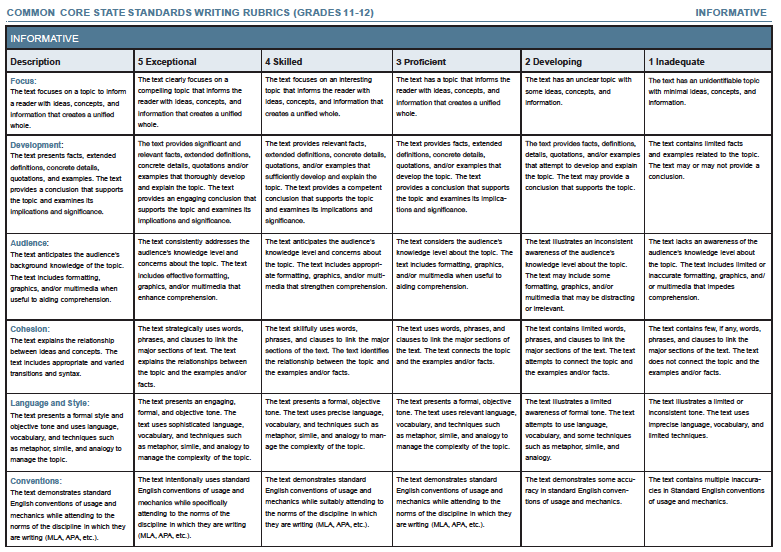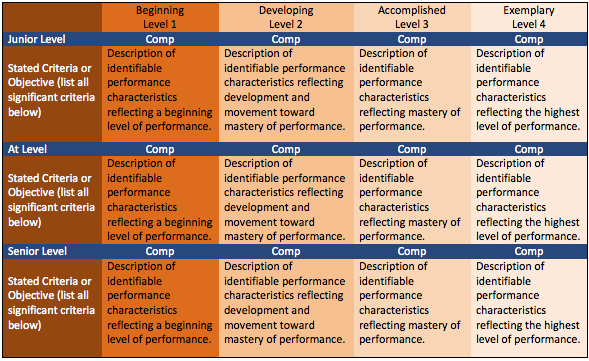Educational Rubrics
Educational institutions have long struggled with performance evaluation of employees. They have succeeded, however, with developing some useful rubrics to evaluate the performance of students. Rubrics provide a vertical set of performance criteria against horizontal measures of effectiveness. They tend to work best when the evaluation is complex and somewhat subjective–when students may not be certain about what is expected of them, in other words. In studying the rubric, students can not only learn what is expected of them, but also assess their own progress at any stage.
Here’s an example of a high-school writing rubric:
Business Rubrics
Like educational rubrics, business rubrics tend to work best when evaluation is complex and subjective. Rubrics help demystify what is expected of employees in their current position as well as what is necessary for them to achieve a promotion and/or raise. Rubrics can also remind them of the brand promise as it relates to their work.
Rubrics works well in organizations with clearly defined tiers, but they can also help define tiers in organizations where the tiers are blurry. The rubric below provides a sense of how this might look for an organization with three tiers (junior, at level, senior):
The scaffolding of a rubric–outlining the training and skills needed for advancement–allows everyone to see exactly what must be done to move from entry level all the way to senior positions. Employees appreciate the increased transparency rubrics provide, as well as the opportunities for self-assessment and self-correction. Employers benefit from standardizing the training and competencies of their employees, as well as the level of service and execution provided to clients. They also benefit from a step-system that keeps salaries and promotions in check; this is particularly valuable for start-ups that are experiencing high growth and may be vulnerable to ransom demands from employees.
Consider using rubrics to evaluate performance and manage expectations. They’ve worked in the educational sphere and for many executive coaches. Would they work for you?




